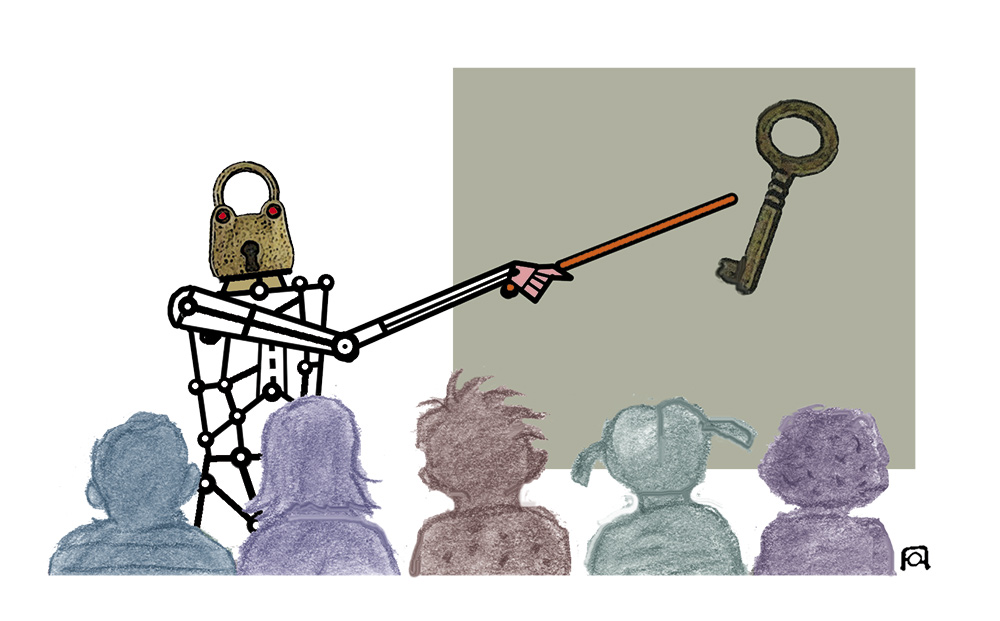

I don't mention anything new if I say that education has a strong social implication, not even recognizing that education is the main social fact. If it is nothing more than the transmission and introjection of values, behaviors, beliefs, customs, norms, etc. How do we understand education beyond its configuration?
Hence, all educational processes are political, ethical, ideological actions in themselves. And for the same reason it is not possible to make neutral decisions as educators in the choice of how to educate, in the definition of contents and objectives, in the choice of methodology, or in general in the school organization.
We are influencing society from our educational conception, from the beginning we have to decide whether the school should wager on transformation or the status quo. Based on this fundamental choice, we classify the various types of school organizations that have been structured throughout history as mere reflections of those different political forms that have always existed to understand and situate the world and people.
In general, the view based on the punishment, manipulation and oppression of children remains the main pedagogical paradigm. Today it is true that it is rare for a teacher to clearly recognize these parameters, consider authoritarian, or explicitly defend the role of authoritarian professor, but not because we are not framed in that role, but simply because it is deeply rooted and naturalized in us, that way of working in school: how to explain it, ask permission to go to the bathroom, our absolute control over the word and movement, our determination, etc. As Foucalt warned us, the school still seems too big with jail.
Another view, from freedom, would be one that seeks the integral development of people, according to which education is almost the only possibility of social transformation. In this case, the risk may be in the misreading of freedom, because freedom is not here and now something natural or natural, but must be conquered through a process of liberation, and we act as if this were not so, more often than necessary.
When the structural oppression(s) is so much, and especially in such hidden times, emancipation is the condition and key to freedom. That is why the political literacy of children is very important, because children are not, merely because they are children, except the influence of this powerful socio-political system, but quite the opposite. They are more effective and therefore more vulnerable to hegemonic discourses.
Among the functions of educators and educators we want to educate in a free way is the support to detect attitudes, discourses, practices and political structures that prevent us from being free. It will hardly be possible to name oneself free, without questioning social reality and without taking a firm attitude towards injustices, an education that ignores oppression. Or, well, where you look. Perhaps free, but for the ideology of the current system. Open use.
Perhaps it is not possible, perhaps we cannot. But because we're banned from it, or because of the risks we'd take in doing so, right? Let us not, moreover, in the name of freedom or on the excuse of respect for freedom, make an irreverent cry for the depoliticisation of education.
Oh, and by the way: if you haven't been able to talk about oppression, we're flushed, right?